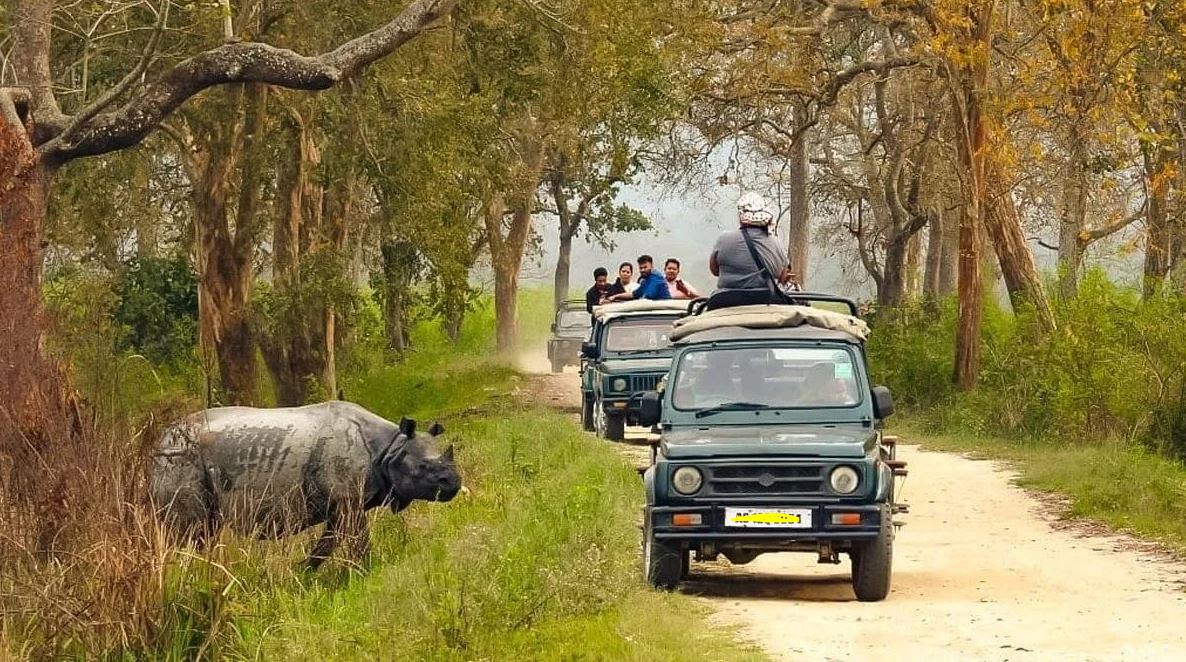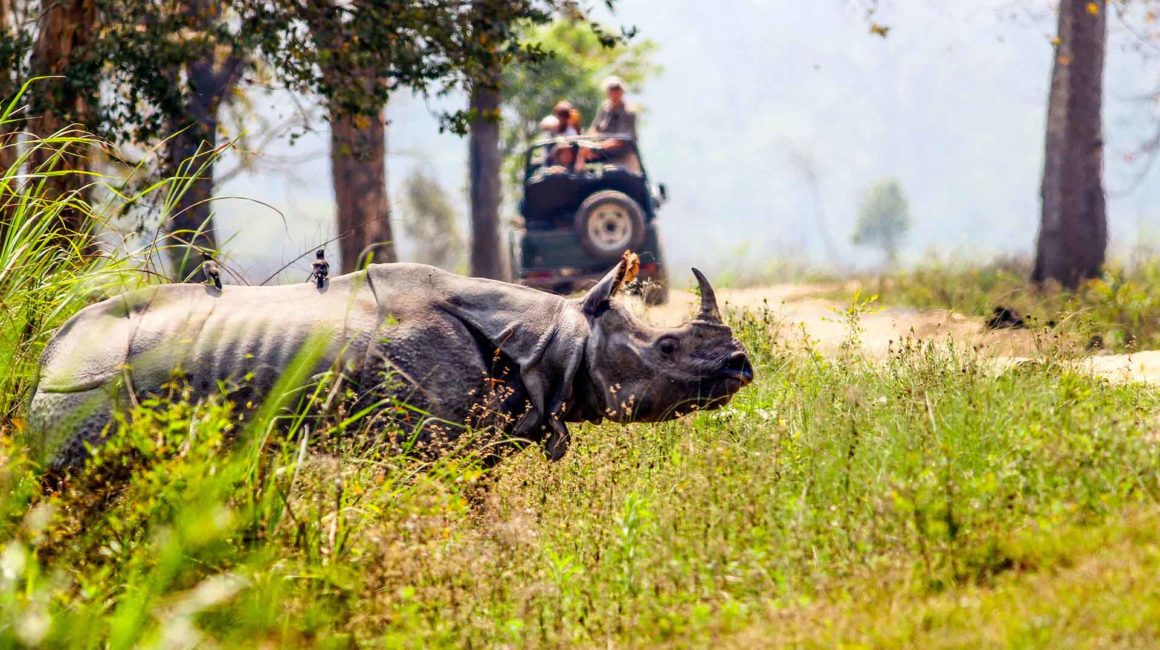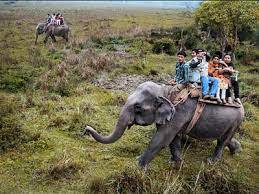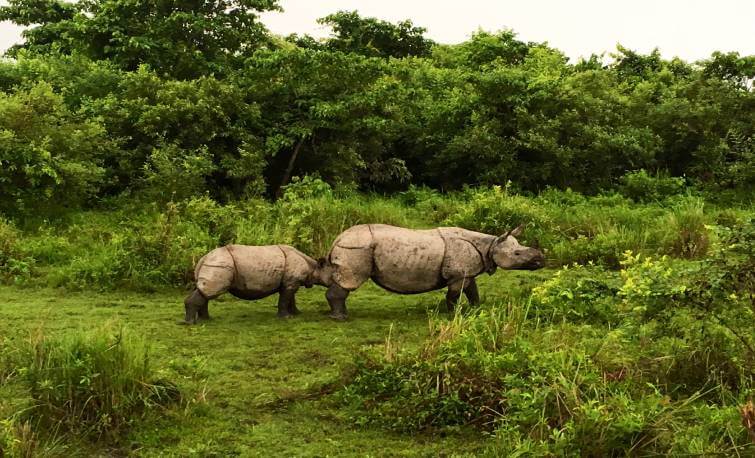
Kaziranga Safari Reopens for 2025-26 with a New Trekking Route
The Central Kohora Range of Kaziranga National Park has officially reopened for tourists, marking the beginning of the 2025-26 tourism season. The ceremonial inauguration took place on November 2, 2025, at the Mihimukh entrance gate, where Assam’s Forest Minister Chandra Mohan Patowary inaugurated the event by performing the traditional ribbon-cutting and coconut-breaking ceremony. The occasion was attended by prominent dignitaries, including Bokakhat MLA and Agriculture Minister Atul Bora, Minister Keshab Mahanta, Kaziranga MP Kamakhya Prasad Tasa, MLAs Darsing Ronghang, and members of the Karbi Anglong Autonomous Council – Ritesh Enghee and Madhurjya Dhekial Phukan.
Also present were Kaziranga Field Director Dr. Sonali Ghosh, local residents, forest officials, and tourism stakeholders. The reopening marked the official start of jeep and elephant safaris in the Central Kohora Range, offering visitors an opportunity to explore Kaziranga’s world-famous wildlife and stunning landscapes.

During the ceremony, Forest Minister Patowary highlighted last year’s record-breaking tourist turnout and expressed confidence that the park would witness an even higher number of visitors this season. He extended an open invitation to both domestic and international tourists to experience the beauty and biodiversity of Kaziranga. Minister Keshab Mahanta also noted that Assam’s improving tourism environment has made Kaziranga one of the most sought-after destinations globally.
Rhino Run and New Developments
Before the formal opening, the day began with the “Kaziranga Rhino Run,” an event organised by the Kaziranga National Park authorities and RWTiRP. The run saw participation from over 300 male and female runners from different states across India, promoting wildlife awareness and fitness among participants.
Following the inauguration of the Kohora Range, a new elephant shed was opened at Mihimukh in memory of Mohanmala, a beloved elephant who had served Kaziranga for many years before her passing. The event also witnessed the launch of a 5-kilometre hill trekking route at Chilimkhua in Karbi Anglong district, expanding adventure tourism opportunities in the region.
In addition, Forest Minister Patowary distributed certificates and stipends to over 200 mushroom farmers who completed a 5-day training on biological mushroom cultivation. The training was organised by the Kaziranga-Hukuma Beel Conservation and Development Committee, supported by Kaziranga National Park and funded by the National Adaptation Fund for Climate Change (NAFCC).
Revised Safari Rates and Conservation Focus
Ahead of the main season opening, the elephant safari at the Burapahar Range resumed on November 1, coinciding with the Assam government’s implementation of revised entry and safari rates across all protected areas. This is the first update in ten years, aimed at addressing inflation and ensuring fair compensation for the private elephant owners who contribute significantly to tourism and conservation.
Every season, approximately 40 to 50 privately owned elephants operate within Kaziranga, supporting both local livelihoods and the park’s visitor management system. From 2021–22 to 2024–25, the park recorded 174,704 visitors who chose the elephant safari experience, reflecting a steady rise in the popularity of early morning rides through rhino-inhabited grasslands.
Renewed Tourism and Global Interest
The reopening of the Central Kohora Range signifies a renewed chapter for Kaziranga National Park, one of India’s most iconic UNESCO World Heritage Sites. Known for its one-horned rhinoceros, diverse wildlife, and rich ecosystem, the park continues to be a key destination for nature enthusiasts, photographers, and adventure seekers. With the 2025-26 season underway, Kaziranga is set to welcome an influx of visitors eager to witness its vibrant biodiversity and participate in sustainable eco-tourism activities. The government’s continued focus on infrastructure, conservation, and community development further strengthens Kaziranga’s position as a premier wildlife destination on the global map.


